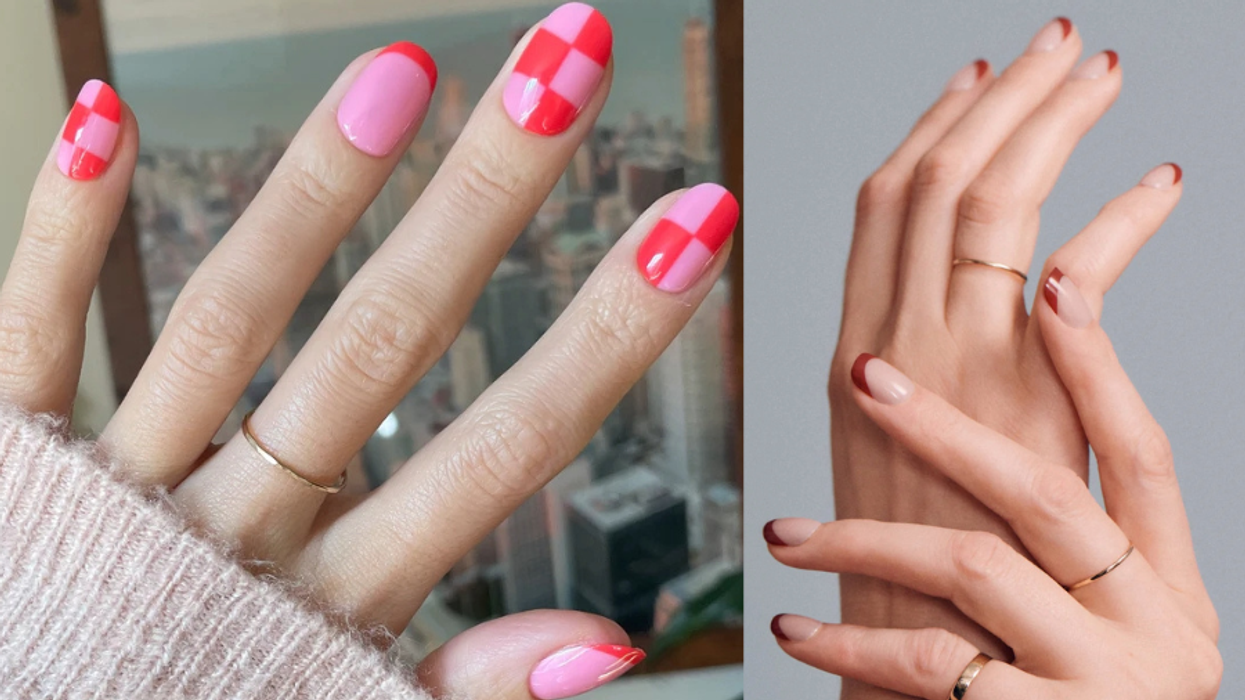Whether you’re the flaker or the flakee, flaky friendships can take a toll.
A Guide to Dealing With Flaky Friends

Flaking out on a friend used to be the stuff of major TV drama: One character would be left alone with a group project or prom dress appointment, while their absent pal accepted an impromptu date with someone cooler. Usually, the flaky friend would remember the plan they’d ditched just a little too late and promptly rush to their BFF’s side. After talking through their underlying relationship issues, the friends would end up closer than ever.
In real life, flakiness is more frustrating than dramatic — and unfortunately, it’s rarely a catalyst for relationship growth. Whether you’re the “flaker” or the “flakee” (or, like most of us, you have experience on both sides), this behavior can cause a lot of stress. Here’s how to preserve your mental health (and your friendship) when flakiness gets in the way.

Practice Empathy
1. If You’re theFlakee: Your friend cancels plans at the last second, shows up late or not at all, and avoids messages across all platforms. It feels personal — but is there a chance that they’re dealing with their own problems?
“Sometimes when people are feeling down or low they think it’s better not to be social,” says Jasmin Terrany, LMHC, a therapist who specializes in supporting professional women being successful in their personal lives. “They don’t want to put their ‘heaviness’ on somebody else.” And if your friend is struggling with a mental health issue, like depression or anxiety, reaching out might feel physically impossible.
Couples’ counselor and psychologist Dr. Wyatt Fisher offers another mental-health-based explanation: “They may have untreated ADHD,” he says. “In relationships, this can come out as being chronically late, canceling last minute, or forgetting about the plans altogether.” For those who have lived with ADHD symptoms since childhood — especially without a diagnosis to put those symptoms into perspective — they might be experiencing additional feelings of negativity and low self-worth associated with their so-called flaky behavior.
Instead of taking your friend’s actions to heart, try to understand what might be going on below the surface. Terrany points out that when someone is caught up in negative feelings or insecurities, they may not be able to fully gauge how their actions affect others. “There’s a good chance this person is your friend because they are a good person, so the assumption should never be that they are intentionally blowing you off because they don’t care about you,” she says.
2. If You’re the Flaker: You’re exhausted from work and have a backlog of laundry, and just thinking about a mojito-fueled happy hour with your bestie makes your bones ache. You don’t *want* to cancel — again — but you just really, seriously can’t. Besides, is it really that bad to give your friend the chance to have a relaxing night in?
“What the flaky friend doesn’t realize is that their behavior can really hurt,” says marriage and family therapist Heidi McBain, MA, LMFT, LPC, RPT. “So the other person might feel sad or depressed because they don’t feel cared for or they may feel worried and anxious that their friend might not show up.”
When you feel comfortable in a relationship, it’s easy to assume you’ll always be forgiven. But the more often you hurt someone, the harder it gets for them to recover. Over time, emotional baggage might start weighing down your friendship.
Of course, there might also be times when, after a tough day at the office, your BFF is on the same page as you are — even hoping you flake out first! But don’t discount the possibility that they really need this time with you. And if you want to stay in because you’re feeling low, try to be honest about it. Give your friend the opportunity to be there for you, whether that means showing up on your doorstep to wash a week’s worth of dishes, or binging old episodes of Gilmore Girls via FaceTime.
Work on Communication
1. If You’re the Flakee: Sure, no one wants to be the friend with no chill. But if your friend’s flakiness is affecting you, then you owe it to the relationship to call them on their *ish.
“Make sure not to use the word ‘Why?'” says Terrany. “When we ask a question starting with ‘why,’ it makes the other person feel defensive. It’s more important to ask with love and curiosity and the assumption there is a deeper reason that isn’t personal to you.”
Fisher advises giving your friend the benefit of the doubt. “Then, discuss together what the options are for compromising or modifying this pattern moving forward,” he says.
2. If You’re the Flaker: If you notice yourself acting flaky, own up to it. Even if you’re not immediately able to break the habit, just acknowledging that you’re aware of your own behavior goes a long way.
Admitting what’s going on can also be a huge step for your own mental health, allowing you to start working towards an action plan to remedy this pattern.
Know Where to Draw The Line
1. If You’re the Flakee: At a certain point, if your friend’s behavior feels hurtful or stressful, or harms your self-esteem, you need to put your own well-being first.
McBain suggests reflecting on the relationship as a whole. “[You] need to really look at the friendship and figure out what [you] are getting out of it and if it’s positively or negatively impacting [your] life,” she says.
If your feelings about the relationship are more positive than negative, you could try changing the way you interact with your friend. McBain suggests lowering your expectations, making plans at your home, and assuming that your friend won’t come through if they don’t respond to a call an hour before your plans.
But if you’ve run out of good will, it’s okay to focus your energy on relationships that feel more equitable. “It’s important to cultivate several friendships beyond them so you’re not dependent on their consistency to feel good about yourself,” says Fisher.
2. If You’re the Flaker: If you notice yourself canceling plans regularly, take a step back. Is this an issue across the board, or do you tend to avoid certain people more than others? Are you withdrawing from weekly get-togethers with your bestie to prioritize something else, like work or a dude? As the expression goes, actions speak louder than words — and sometimes we need to listen and learn from them.
There’s absolutely nothing wrong with putting your job first or getting caught up in a new relationship, but make sure you know what balance looks like for you. That might mean working more late nights than your friends can understand and sacrificing cocktails in favor of laundry — and that’s totally alright. But you also have to be real with yourself so you don’t end up scheduling commitments you can’t keep.
Have you worked through a flaky friendship? Tell us about it at @BritandCo!
(Photo via Getty)



















